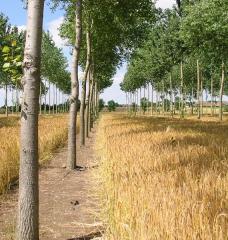
Planting as many new forests as the planet can support would store a huge share of the carbon dioxide humans have emitted since the industrial revolution, according to a new paper published in Science. But the paper has also attracted pushback on its methods and unease over the lessons readers might draw about continued fossil fuel use, as James Temple, MIT Technology Review's senior editor for energy, writes in this article.
Read the full article at: https://www.technologyreview.com/f/613928/planting-more-trees-could-rem…
Image by: Casey Horner on Unsplash
Topics






